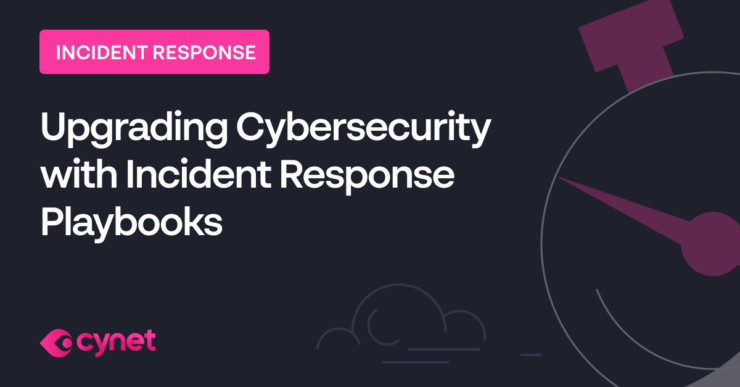Why Are Incident Response Certifications Important?
Improving Career Prospects
As the demand for skilled cybersecurity professionals continues to rise, these certifications serve as a valuable differentiator in the job market. They provide professionals with a competitive edge, making them more attractive to potential employers.
Globally recognized certifications are valuable assets for those aiming for international career opportunities. They are proof of a professional’s practical incident response skills, and their commitment to staying up-to-date with the latest developments and best practices in the field of cybersecurity.
Meeting Organizational and Regulatory Requirements
In today’s regulatory landscape, compliance with cybersecurity standards and regulations is critical. incident response certifications ensure that professionals are well-versed in these standards and can help their organizations meet their compliance obligations. This ability is particularly crucial for businesses operating in sectors where data security and privacy are paramount, such as finance, healthcare, and eCommerce.
Demonstrating Commitment and Expertise in the Field
Earning certifications involves rigorous training and examination, signifying a deep understanding of the subject matter. They show that a professional is not just familiar with the theory but is also capable of applying it in real-world situations.
Moreover, these certifications require ongoing learning and recertification, demonstrating a professional’s commitment to keeping their skills current. This commitment is highly valued in the rapidly evolving field of cybersecurity.
Notable Incident Response Certifications
1. Certified Incident Handler (GCIH)
The Global Information Assurance Certification (GIAC) Certified Incident Handler (GCIH) is one of the most recognized incident response certifications. This certification covers the essential principles of identifying, responding to, and resolving computer security incidents.
Acquiring the GCIH certification equips individuals with the necessary skills to manage security incidents by understanding common attack techniques, vectors, and tools, as well as defending against and/or responding to such attacks when they occur. The GCIH certification is ideal for incident handlers, system administrators, or anyone with information security responsibilities.
The GCIH certification provides practical, hands-on experience that enables professionals to handle real-world scenarios effectively. The certification process involves rigorous training and an examination that tests the individual’s ability to handle incidents, protect an organization’s information, and respond to emergencies.
2. Certified Computer Security Incident Handler (CSIH)
The Certified Computer Security Incident Handler (CSIH) certification is offered by the Software Engineering Institute (SEI) at Carnegie Mellon University. This certification is designed for individuals who are responsible for handling and responding to security incidents.
The CSIH certification focuses on the necessary steps to respond to a security incident, including preparing for, reacting to, and learning from incidents. It covers areas such as incident response team management, incident detection, and reaction, along with incident documentation, and how to prevent future incidents.
Professionals seeking the CSIH certification must have at least two years of experience in incident handling and must pass an examination. This certification is highly valued in the industry, and certified professionals are recognized as experts in incident handling.
3. EC-Council Certified Incident Handler (ECIH)
The EC-Council Certified Incident Handler (ECIH) program is designed to provide fundamental skills to handle and respond to computer security incidents in an information system. It provides a structured approach to understanding and implementation of incident handling procedures.
The ECIH certification covers real-world incident management and incident response techniques, such as incident handling and response preparation, incident validation and its priority determination, forensic evidence gathering and analysis, incident reporting, incident recovery, and post-incident activities.
The ECIH is a globally recognized certification and is suitable for incident handlers, risk management professionals, penetration testers, cyber forensic investigators, vulnerability assessment auditors, system administrators, system engineers, firewall administrators, network managers, IT managers, IT professionals, and anyone involved in incident handling and response.
4. EC-Council Certified Network Defender (CND)
The Certified Network Defender (CND) is a vendor-neutral, hands-on, instructor-led comprehensive network security certification training program offered by EC-Council. It is a skills-based, lab-intensive program based on a job-task analysis and the cybersecurity education framework presented by the National Initiative of Cybersecurity Education (NICE).
The CND certification provides a comprehensive approach to effectively design, implement, manage, and protect an organization’s network. It covers network security controls, protocols, perimeter appliances, secure IDS, VPN and firewall configuration, intricacies of network traffic, and more.
The certification is suitable for network administrators, network security administrators, network security engineer, network defense technicians, CND analyst, security analyst, security operator, and anyone involved in network operations.
5. GIAC Critical Infrastructure Protection (GCIP)
The GIAC Critical Infrastructure Protection (GCIP) certification is designed for professionals who are responsible for the security and operation of critical infrastructure assets. This certification validates a practitioner’s knowledge of the key concepts and skills necessary to protect critical infrastructure assets.
The GCIP certification focuses on the essential elements of security and resilience for critical infrastructures, including risk management, access control, disaster recovery, and incident management. It provides a comprehensive understanding of the strategies, policies, and procedures to protect, detect, respond to, recover and restore from a range of potential threats.
Professionals seeking the GCIP certification must pass an examination that requires both knowledge and experience in critical infrastructure protection. This certification is ideal for security officers, risk management professionals, and policy makers responsible for protecting critical infrastructure assets.
6. Certified Forensic Computer Analyst (CFCA)
The Certified Forensic Computer Analyst (CFCA) certification is offered by ISFCE (International Society of Forensic Computer Examiners). This certification validates the competency of the professionals in computer forensics in relevance to incident response.
The CFCA certification covers areas such as the preservation of the digital crime scene, forensic imaging and extraction, analysis of file systems, data recovery, and analysis of forensic data. It also includes the ability to apply this knowledge to real-world incident response situations and to prepare forensic reports.
The certification requires passing a comprehensive examination that tests both theoretical knowledge and practical skills in computer forensics.
7. GIAC Reverse Engineering Malware (GREM)
The GIAC Reverse Engineering Malware (GREM) certification is designed for professionals who need to understand the behavior of malware, and how to perform reverse-engineering on malicious software, system-level rootkits, and malware obfuscation techniques. This is a specialization within the field of incident response.
The GREM certification provides the necessary skills to reverse-engineer malicious software that targets Windows systems, using hands-on labs and lectures. This certification is ideal for incident responders and forensic specialists who require the ability to handle complex incidents that involve malware and determine its origin, functionality, and impact.
Learn more in our detailed guide to incident response management
Incident Response Management with Cynet 360
Cynet 360 is an autonomous breach protection platform that works in three levels, providing XDR, Response Automation, and 24/7 MDR in one unified solution. Cynet natively integrates these three services into an end to end, fully-automated breach protection platform.
Cynet understands that building and managing an incident response team is not a viable option for all organizations. This is why, in addition to providing incident response automation, Cynet offers on-demand incident response services.
CyOps, Cynet’s Cyber SWAT team, is on call 24/7/365, allowing enterprises of all sizes to get access to the same expert security staff that protect the largest enterprises. Here’s what you can expect from the CyOps incident response team:
- Alert monitoring—continuous management of incoming alerts: classify, prioritize and contact the customer upon validation of active threat.
- 24/7 availability—ongoing operations at all times, both proactively and on-demand per the customer’s specific needs.
- On-demand file analysis—customers can send suspicious files to analysis directly from the Cynet 360 console and get an immediate verdict.
- One click away—CISOs can engage CyOps with a single click on the Cynet Dashboard App upon suspicion of an active breach.
- Remediation instructions—conclusion of investigated attacks entails concrete guidance to the customers on which endpoints, files, user and network traffic should be remediated.
- Exclusions, whitelisting, and tuning—adjusting Cynet 360 alerting mechanisms to the customers’ IT environment to reduce false positives and increase accuracy.
- Threat hunting—proactive search for hidden threats leveraging Cynet 360 investigation tools and over 30 threat intelligence feeds.
- Attack investigation—deep-dive into validated attack bits and bytes to gain the full understanding of scope and impact, providing the customer with updated IoCs.
Learn about the Cynet Breach Protection platform and the CyOps incident response team




